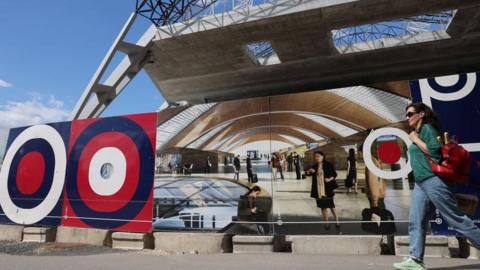The three Baltic states came up with the idea years ago for a high-speed railway spanning 870km (540 miles) across Estonia, Latvia and Lithuania.
Rail Baltica began as a grand project, but it has now become a strategic imperative: since Russia’s full-scale invasion of Ukraine, the Baltics increasingly view their neighbour as an existential threat.
Currently, there is no direct link that crosses the Baltics and connects with Poland.
Rail Baltica will do that, cutting travel time and bringing economic and environmental benefits, but the costs of this ambitious scheme are mounting.
Meanwhile, Baltic states and their Nato allies need the railway in place fast.
Estonia's Infrastructure Minister Vladimir Svet said the rail link is vital amid the Russian war in Ukraine.
“History is repeating itself,” he said. “Putin's aggressive regime is trying to recreate an imperial project on the territory of the former Soviet bloc."
The memory of decades of Soviet occupation is still fresh in the Baltics. Moscow deported hundreds of thousands of people from the region to Siberia.
Estonia and Latvia share land borders with Russia, while Lithuania is adjacent to the Russian enclave Kaliningrad, which also shares a border with Poland, and Moscow's close ally, Belarus.
